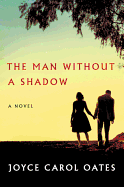
In the first pages of The Man Without a Shadow, 23-year-old graduate student Margot Sharpe meets her research subject: Elihu Hoopes, handsome, charming, successful and suffering from severe amnesia. Over the course of the next 30 years, Margot spends most of her waking hours studying Hoopes, trying to learn every nook and cranny of the man's brain, which, by the very nature of his condition, is impossible. But while Hoopes couldn't possibly know or contextualize his own injuries, Margot's are always fresh, always nagging and impossible to vocalize.
As a woman, starting her research in the 1960s, Margot is at a constant disadvantage. Her life is dictated by men, by professional pressure, by fear and by self-loathing. Because Hoopes is the only man who can't know her, he might be the only man she can love.
Some readers judge a book by its treatment of its characters' psychology, and often this refers simply to whether characters' motivations are clear--why they make the choices they make. Joyce Carol Oates shows clearly why the scientific Margot Sharpe does what she does. The entire subject matter of Margot's career is the human psyche, and Oates penetrates much deeper than the woman's immediate actions, concerning readers more fully with the source of her loneliness and isolation. Much like her main character, Oates looks at the entire human tragedy and traces its victories and defeats through memories, both latent and painfully apparent. --Josh Potter

